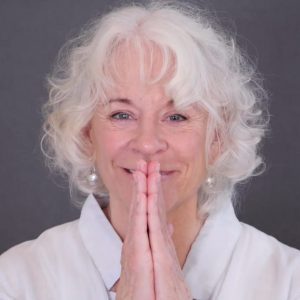Falling Into Yourself – Part VII
“To open your mind to the silence that is the source of your mind is to open to yourself.”

Reading
Open and Receive Yourself
Opening to the truth of our own essential being is simply a matter of receiving. But because of our conditioning, this doesn’t seem like a simple matter. There are usually complications and fears surrounding simply receiving, simply opening. We are conditioned to fear the unknown depths of ourselves, suspecting the worst. There comes a time when we can and must meet this primal fear.
The capacity to receive is natural. When we are babies, we receive what is given. Unless there is some defect, this is the way the infant naturally forms and develops. Nourishment must be received for the organism to grow. Then, as we grow and our minds develop, there comes the revelation and the knowledge that receiving certain things actually causes harm: to receive food that is spoiled or poisoned is harmful to the body; to receive a parent’s lack of love is emotionally destructive; for the mind to receive any indoctrination that teaches hate is brainwashing. Gradually we gain the insight that it is not useful to receive everything that is offered; from that, discriminating wisdom is born.
In the world we live in, much of what is offered is not useful, and it is often potentially poisonous. As we recognize the possibility of harm, we can shut down our natural capacity to receive. With the eventual recognition that our parents were not the powerful, benevolent ones we envisioned them to be, comes a huge disillusionment regarding our capacity to open and trust.
 As we grow up, we experience that even our friends can betray us, can lie to us. We experience in ourselves the capacity to lie to our friends, our husbands, our wives, our teachers, and our governments. We find that our own thoughts can deceive us or torture us; they aren’t trustworthy. Our own emotions can get out of control. Our bodies cannot be trusted: they stumble and fall, they get sick, they age, and they die. The message becomes not to trust, not to open; opening is dangerous; it can hurt. And with that conviction, a kind of hyper-vigilance of the mind develops to try and collect enough information so that if there is ever a time when it is safe to open, we will know when that time is. In service to this fear, most of our mental activity becomes about collecting. No matter how much is collected, there is still more to collect.
As we grow up, we experience that even our friends can betray us, can lie to us. We experience in ourselves the capacity to lie to our friends, our husbands, our wives, our teachers, and our governments. We find that our own thoughts can deceive us or torture us; they aren’t trustworthy. Our own emotions can get out of control. Our bodies cannot be trusted: they stumble and fall, they get sick, they age, and they die. The message becomes not to trust, not to open; opening is dangerous; it can hurt. And with that conviction, a kind of hyper-vigilance of the mind develops to try and collect enough information so that if there is ever a time when it is safe to open, we will know when that time is. In service to this fear, most of our mental activity becomes about collecting. No matter how much is collected, there is still more to collect.
We go to teacher after teacher, training after training, book after book, tape after tape, in a frantic effort to collect the information we think we need to stay safe. Throughout it all, we have a profound yearning just to be open. This is often phrased as the yearning to “return home,” to return to the innocence of a child, to enter heaven. But by this time our mind is no longer a child’s mind. Our minds, our bodies, and our emotions have experienced some very rough events.
Maybe in a moment of grace you open to your wife or your husband, your child, your lover, or your teacher. But then the habit to close arises very quickly because memory, whether conscious or unconscious, reminds you that hurt can follow opening.
I am not suggesting that you try to open, or that you try to forget about the past, or that you try to receive. That will only create more struggle. What you can do is simply observe when your mind is open and when your mind is closed. You can observe when you are open to receive and when you are rejecting out of habit. Simply tell the truth—not as a means of gathering more information, but as a path of self-discovery.
Telling the truth about any feeling, thought, or circumstance lays the ground for the power of self-inquiry. Inquiry is like shining a light into a basement where a creaky old furnace that you never even knew existed is spewing noxious gases all through the house. Inquiry opens the door and shines a light in the basement, so you can see and realize, oh my God, no wonder I feel sick in body, mind, and spirit. In that recognition, without even thinking, the natural course is to turn the furnace off. That comes from your own innate intelligence. You also see that you have within you an endless capacity to open the window of your mind and receive the freshness of what is truly pure. Along the way is the recognition that even with the experience of wounding and damage, there remains a purity of being. The core of yourself is still whole no matter what fragmenting has gone on around it.
It is not that people won’t betray you. It is not that your heart won’t break again and again. Opening to whatever is present can be a heartbreaking business. But let the heart break, for your breaking heart only reveals a core of love unbroken.
![]()


 As we grow up, we experience that even our friends can betray us, can lie to us. We experience in ourselves the capacity to lie to our friends, our husbands, our wives, our teachers, and our governments. We find that our own thoughts can deceive us or torture us; they aren’t trustworthy. Our own emotions can get out of control. Our bodies cannot be trusted: they stumble and fall, they get sick, they age, and they die. The message becomes not to trust, not to open; opening is dangerous; it can hurt. And with that conviction, a kind of hyper-vigilance of the mind develops to try and collect enough information so that if there is ever a time when it is safe to open, we will know when that time is. In service to this fear, most of our mental activity becomes about collecting. No matter how much is collected, there is still more to collect.
As we grow up, we experience that even our friends can betray us, can lie to us. We experience in ourselves the capacity to lie to our friends, our husbands, our wives, our teachers, and our governments. We find that our own thoughts can deceive us or torture us; they aren’t trustworthy. Our own emotions can get out of control. Our bodies cannot be trusted: they stumble and fall, they get sick, they age, and they die. The message becomes not to trust, not to open; opening is dangerous; it can hurt. And with that conviction, a kind of hyper-vigilance of the mind develops to try and collect enough information so that if there is ever a time when it is safe to open, we will know when that time is. In service to this fear, most of our mental activity becomes about collecting. No matter how much is collected, there is still more to collect.